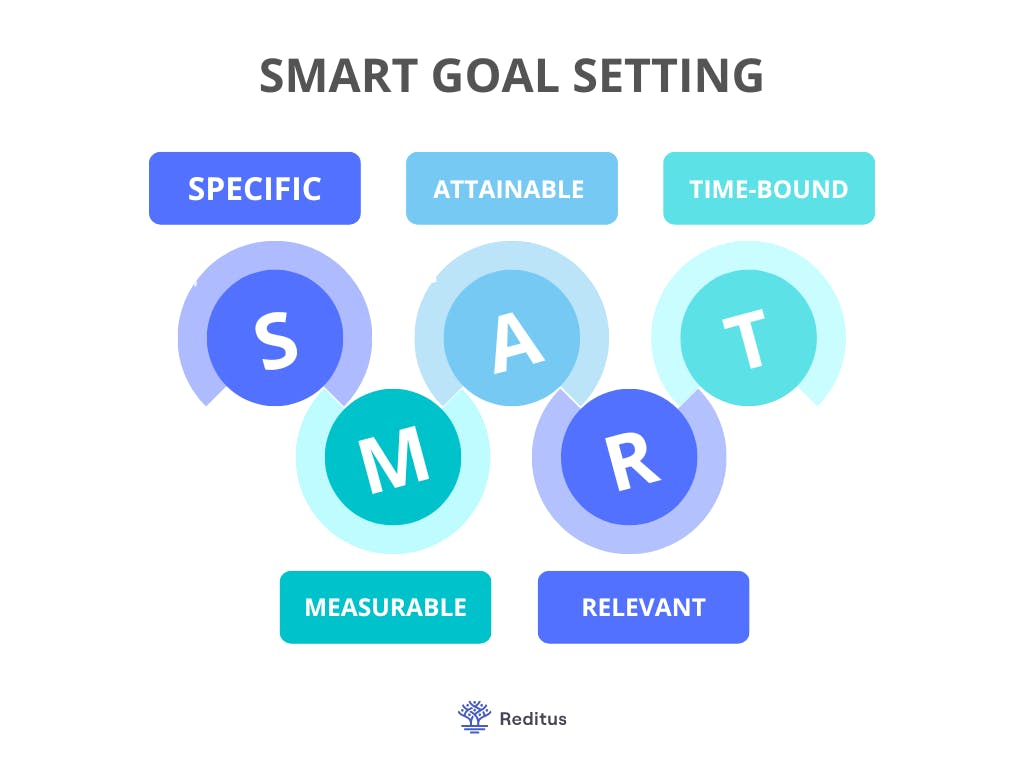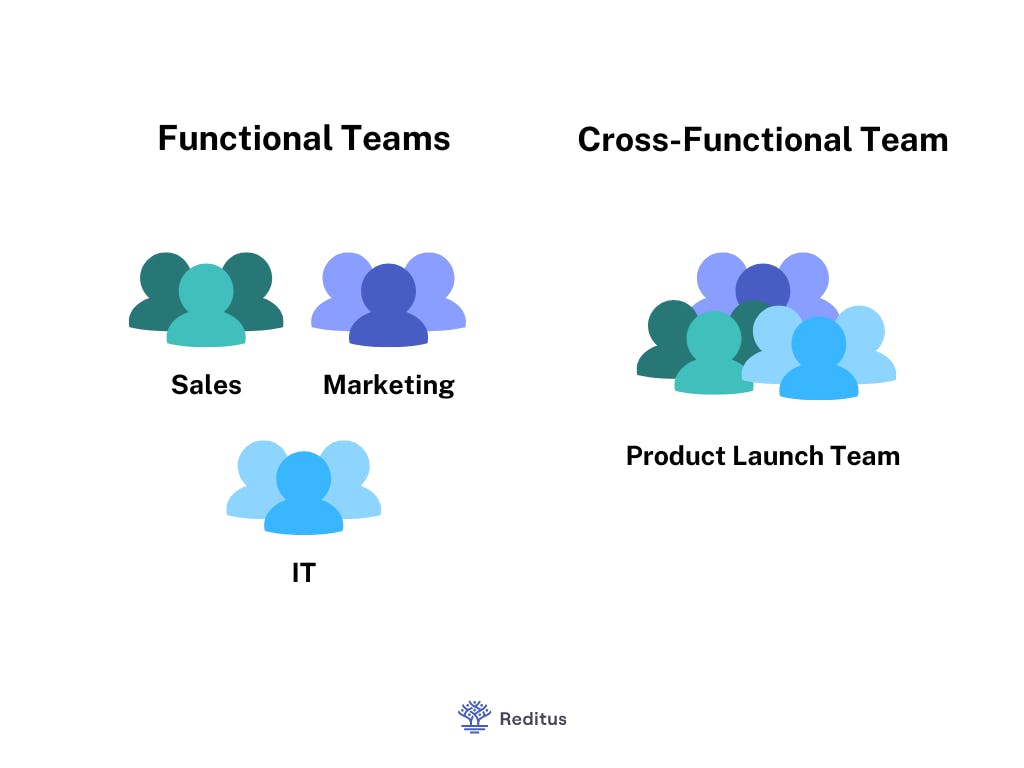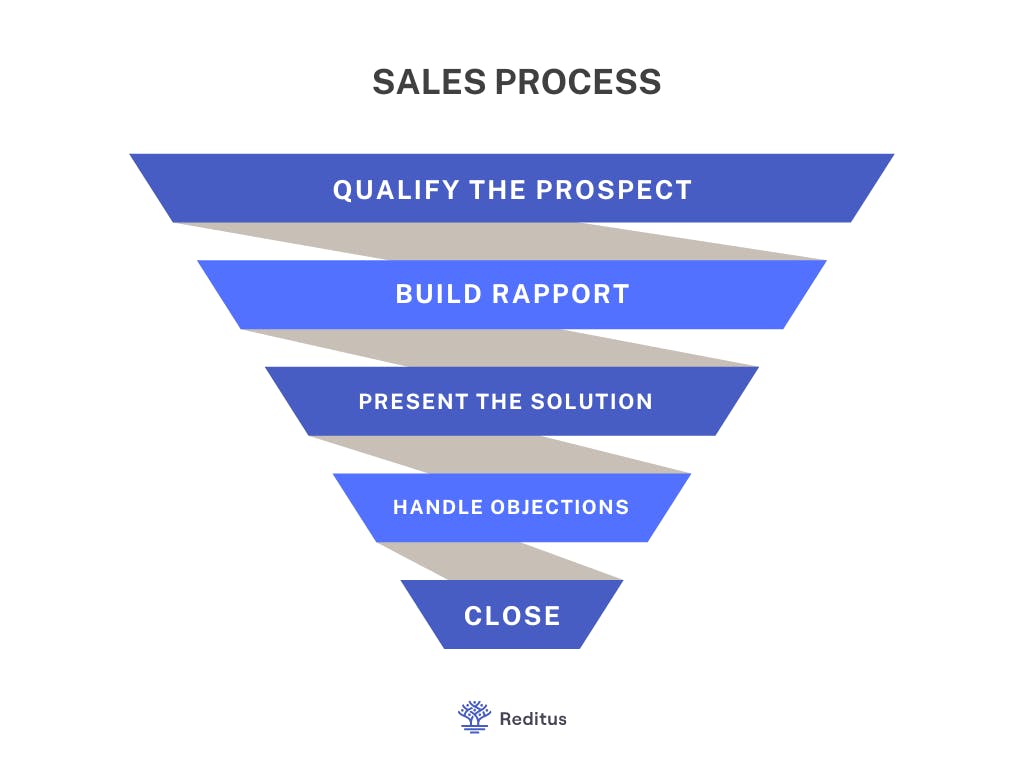The SaaS Guide to Building an Effective Sales Team

There's no question that a strong sales team is essential to the success of any SaaS startup. After all, without sales, there would be no revenue. But what exactly makes for an effective sales team? And how can you build one that will successfully sell your service?
Today's guide will answer those questions and more. We'll cover everything from the traits that all great sales reps share to building an effective sales team from scratch.
By the end, you'll clearly understand what it takes to create a sales team that can close deals and drive revenue for your business.
Let's get started.
Table of contents
The Anatomy of a Successful Sales Team
Every successful sales team has specific vital components. These are the essential parts that work together to drive results.
In SaaS, the sales team is responsible for finding and qualifying potential customers, building relationships, and closing deals.
Enterprise sales teams may be larger and more complex, but the basics are the same.
The essential components of a successful sales team are:
- A sales manager or leader
- Highly skilled and knowledgeable sales reps
- The right tools and technologies
- Clear goals and objectives
- A results-driven culture
Some companies may also have a dedicated sales operations team supporting sales reps. Doing so can be helpful, but it's not essential.
Also, remember that a successful sales team doesn't just happen overnight. Building a sales team that performs at a high level takes time, effort, and planning.
Let's explore each of these components in more detail.
A Sales Manager or Leader
Every sales team needs someone to take charge and provide guidance. This is the sales manager or leader's role.
The sales manager is responsible for setting the team's goals, managing schedules, and territories, providing coaching and feedback, and more.
A good sales manager will deeply understand the sales process and know how to motivate their team. They should also be able to identify top performers and work with them to help them reach their full potential.
Highly Skilled and Knowledgeable Sales Reps
Of course, no sales team can be successful without great sales reps. These are the people who will be doing the actual selling.
To succeed, sales reps need to know about your product or service and your industry. They should also be skilled in prospecting, relationship building, and closing deals.
The best sales reps are also great communicators. They're able to understand the needs of their customers and explain how your product or service can help them solve their problems.
The Right Tools and Technologies
Sales reps need the right tools and technologies. This includes customer relationship management (CRM) software, sales intelligence platforms, and proposal creation tools.
The right tools will help sales reps stay organized, manage their time effectively, and close deals more efficiently. They'll also give managers visibility into the sales process to see where reps are struggling and offer help.
Clear Goals and Objectives
Every sales team needs clear goals and objectives. Without them, it's impossible to measure success or identify areas for improvement.
Goals should be specific, measurable, achievable, relevant, and time-bound. They should also be aligned with the overall goals of the company.

Some examples of goals for a sales team might be:
- Achieve a certain number of new sales each month
- Increase the average deal size
- Reduce the time it takes to close a deal
- Achieve a particular customer satisfaction score
Of course, these are just a few examples. Your team's goals will depend on your business's specific needs.
A Results-Driven Culture
Finally, all of the above components need to be supported by a results-driven culture. This means that everyone on the team is focused on meeting or exceeding their goals.
There's a strong emphasis on accountability and responsibility for one's performance. Sales reps are expected to improve and find new ways to succeed continuously.
Managers play a crucial role in creating a results-driven culture. They need to lead by example and hold their team members accountable. They should also provide adequate resources and support so that reps can be successful.

What Are the Essential Skills for Sales Reps?
Here are some of the essential skills that every sales rep should have:
1. Communication Skills
The ability to communicate clearly and effectively is essential for sales reps. They need to be able to explain the features and benefits of your product or service in a way that is easy for customers to understand.
They also need to listen to customer needs and objections and respond in a helpful, not pushy way.
For example, let's say you're a sales rep for a new CRM software. A potential customer might express concern that the software is too complicated to use.
In this case, the sales rep would need to explain the software's features in a way that is easy to understand. They might also highlight that the software provides training and support to help users get started.
Otherwise, the customer might feel like they're being sold to, which could turn them off your product or service.
2. Prospecting Skills
Prospecting is the process of finding new potential customers to sell to. It's a critical part of the sales process but also one of the most challenging.
The best sales reps are great at prospecting. They know how to find potential customers that are a good fit for your product or service. They also know how to reach out to them in a way that gets their attention.
For example, a sales rep might use LinkedIn to find potential customers that work in the same industry as their target market. They would then reach out to these individuals with a personalized message.
Some companies have a dedicated prospecting team that handles this process. However, in many cases, it's the responsibility of the sales reps themselves.
3. Organizational Skills
Organizational skills are important for sales reps for a few reasons. First, they need to be able to keep track of their prospects and customers. This includes contact information, communication history, and any important details about the relationship.
Sales reps also need to be able to keep track of their own to-do list and goals. They should have a system in place for following up with prospects and tracking their progress.
Finally, sales reps need to be able to submit accurate and complete reports to their managers. This might include weekly or monthly activity reports, as well as sales data.
Keep in mind that this isn't a comprehensive list of skills that sales reps need. However, these are some of the most important skills that will help them be successful.
How to Build a Successful Sales Team From Scratch
At this point, you might be thinking, "That's all well and good, but how do I actually build a successful sales team from scratch?"
Here are a few tips:
1. Define What Success Looks Like for Your Sales Team
Before you can build a successful sales team, you need to know what success looks like. What are your goals and objectives? What metric are you trying to hit?
For example, let's say your goal is to increase revenue by 20% in the next quarter. In order to do this, you need to set a sales goal that your team can hit.
To do this, you need to know your average deal size and close rate. Let's say your average deal size is $5,000, and your close rate is 20%. This means that you need to close ten deals in order to reach your goal.
2. Define Your Team Structure and Roles
The next step is to define your team structure and roles. How many sales reps do you need? What types of positions do you need to fill?
For example, you might need to hire an account executive, a sales development representative, and a customer success manager. Or, you might decide to have a team of sales reps that each focus on a specific market segment.

Depending on the size of your company, you might also need to hire a sales manager. This person would be responsible for leading and coaching your sales team.
Many roles on a sales team can be filled by remote employees. However, some roles might require someone to be in the office, such as a sales development representative.
3. Create a Sales Process
The next step is to create a sales process. This is the series of steps that your sales reps will take in order to close a deal.
There are many different ways to structure a sales process. However, most of them will include these steps:
- Qualifying the prospect
- Building rapport
- Presenting the solution
- Handling objections
- Closing the deal

Your sales process should be flexible enough to accommodate different types of deals. For example, a small deal might only require a few steps, while a larger deal might require more steps.
4. Hire the Right People for the Job
It's important to hire salespeople that have the skills and personality traits that we talked about earlier. However, it's also important to make sure they're a good fit for your company culture.
The best salespeople are those that are coachable and willing to learn. They're also competitive and driven to succeed.
Many companies use personality tests like the Myers-Briggs test to assess whether a candidate is a good fit for their organization.
Others use skills tests to assess a candidate's sales ability. For example, some companies might give candidates a scenario and ask them to role-play the sale.
Some others even go as far as to hire a sales coach to help train and develop their sales team.
Whatever approach you take, the important thing is to make sure you're hiring the right people for the job.
5. Train Your Sales Team
Once you've hired the right people, it's important to train them in your sales process. This includes everything from prospecting to closing the deal.
Many companies have a sales playbook that outlines the steps that need to be taken in order to close a deal. This is a valuable resource for sales reps, as it gives them a roadmap to follow.
It's also important to provide ongoing training and development for your sales team. This might include sales training courses, as well as coaching and mentorship from more experienced reps.
You might also want to train your team on using your company's sales CRM (customer relationship management) system. This will help them keep track of their prospects and customers, as well as their own to-do list and goals.
6. Hold Your Sales Team Accountable
Once you've built your sales team and trained them on your sales process, it's important to hold them accountable. This means setting clear expectations and goals and then following up to make sure they're met.
This might include weekly or monthly one-on-one meetings, as well as regular team meetings. During these meetings, you can review your team's progress and give them feedback.
You can also use a CRM system to track your team's progress and performance. This might include sales data (e.g., number of deals closed, average deal size, etc.), as well as customer feedback.

7. Reward and Incentivize YourSsales Team
In order to keep your sales team motivated, it's important to reward and incentivize them. This might include commission or bonus structures, as well as other types of incentive programs.
For example, you might offer a bonus for every new customer that's acquired or a commission on every deal that's closed.
It's also important to recognize and celebrate your team's successes. This might include public recognition (e.g., in team meetings or company-wide emails), as well as more personal forms of recognition (e.g., handwritten notes or small gifts).
Ultimately, it boils down to finding what works best for your team and then tailoring your incentive program accordingly.
Closing Notes
Building an effective sales team is essential for any SaaS company. However, it's not always easy to do.
The good news is that there are a few things you can do to increase your chances of success. This includes hiring the right people, training them on your sales process, and holding them accountable.
You should also reward and incentivize your team for their successes. This will help keep them motivated and focused on achieving your company's goals.
By following these tips, you can build an effective sales team that will help your SaaS company succeed.

